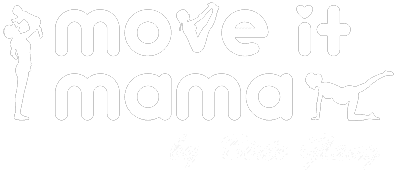Dear Mom,
Finally the time has come, your baby is here! But after the first high, other, mostly unexpected, negative feelings often creep in… Constant exhaustion and lack of energy can lead to a permanent low mood, especially for new moms, and in some cases even end in postpartum depression! But don’t worry, not every postnatal depletion equals postnatal depression. There are many different layers between an emotional high, good, and bad mood, depletion and depression! Also, every mom will go through many mood swings, for the simple reason of hormonal changes and the well-known lack of sleep. But what exactly is a postpartum depression and how can you counteract the emotional chaos and depression-like symptoms? In today’s blog article, we’ll take a closer look at this topic and tell you about a proven miracle cure! 😊
What is postpartum depression?
If symptoms of depression appear in a young mom within the first year after giving birth, it is called postpartum depression. Most often, these signs occur in the first three months after pregnancy.
How do I recognize postpartum depression?
Postnatal depression can involve many different symptoms. For example, some of the most common include:
- lack of energy, listlessness
- sadness, joylessness
- inner feeling of emptiness
- feeling of worthlessness
- feelings of guilt
But don’t worry, if you experience one of these symptoms, you don’t immediately suffer from depression. But if you experience several characteristics repeatedly, please consult your doctor.
Why does sport help against depression after birth?
Physical exercising gets your circulation going and releases happiness hormones. This gives you an extra motivational kick and makes it easier to put aside the negative mindset and focus instead on the special moments with your baby.
Postpartum Depression
Postpartum depression is when young moms develop symptoms of depression within the first twelve months after giving birth. But watch out, your partner can also get this common form of depression during this period. This is much less common, but still possible. In most women, the symptoms start in the first three months after giving birth. The condition is also called postpartum or postnatal depression by doctors and in the literature.
Did you know that one in 10 new moms develops postnatal depression?
The symptoms of postpartum depression are varied, and not all signs have to show up to the same degree in every affected mom. Sometimes these symptoms occur one at a time and are not recognized as postpartum depression.
- Lack of energy, listlessness
- sadness, joylessness
- inner feeling of emptiness
- Feeling of worthlessness
- feelings of guilt
- ambivalent feelings towards the child
- hopelessness
- sexual aversion
- heart troubles
- numbness
- trembling
- anxiety and panic attacks
You the more general symptoms also include:
- Mild irritability
- Persistent fatigue
- Headaches
Don’t worry, you don’t immediately suffer from depression if you experience one of these characteristics, only if several of these symptoms occur increasingly and repeatedly, you should think about contacting a doctor. A doctor should be your first point of contact if you are feeling unstable or just not well. Don’t think that you have to hide something! Because of the ever-present social pressure and the high standards we all have for ourselves, many moms still find it difficult to open up to others about a low emotional state. But I assure you: you’ll always feel better afterwards!
Also, moms with postpartum depression often show a general lack of interest. This can refer to the newborn child, but also to the entire social environment. Usually, affected mommies do not neglect the basic needs of the babies, but are apathetic towards them and no longer pay attention to themselves.
It is really important that you get professional support as soon as possible if you suspect postnatal depression. In extreme cases, postpartum depression needs to be treated in an inpatient facility. Your mental health should always be prioritized alongside your physical fitness. After all, you need a lot of emotional strength and stamina right now during the marathon that the upbringing and care of your little one will require.
My tip: Take time for yourself every now and then in which you really only think about yourself and listen to what your body and mind needs.
I myself used to underestimate this very much. Just like the effect of stretching and breath workouts! Our workout series RELAX AND ROLL IT MAMA helps enormously to recharge your body with new energy. This way you can master the new mommy routine with a little more ease. It is also important to get enough sleep! Even if this is not so easy as a young mom but try to take small breaks during the day to recharge your batteries! In addition, regular cardio training improves your sleep rhythm! I have also developed my very own cardio workout series with MOVE IT MAMA.

Distinguish between Postpartum Depression and Postnatal Depletion
It’s normal to feel drained and drained of energy, especially in the first few weeks after giving birth. After all, your body and mindset have just performed at a high level, and now it’s straight on without a break. Unfamiliar situations and a lot of responsibilities can quickly become a bigger challenge than you initially thought. But be careful: Not every postnatal depletion means that you suffer from postpartum depression.
If you feel overwhelmed or need a good cry, feel like you’re in good company with countless other moms. Even we as moms are only human! If you want to seek help, that’s perfectly fine. However, please distinguish between exhaustion, which we all struggle with due to lack of sleep and hormonal changes, and true postnatal depression.
Aside from the severity of your low mood and other symptoms, you can counteract postnatal depression and negative thoughts quite athletically. Not only as a cure, but also for prevention, regular exercise has more than proven itself to new moms over the decades. 😉

Sport: The Miracle Cure for Depression
Whenever I’m overcome by a persistent emotional downturn or the mood swings just won’t let me rest, exercise is my tried-and-true antidote. And that even has quite a scientific background. Because physical activity has an absolutely positive effect on body and mind. Not only is your fitness increased, your gastrointestinal tract and cardiovascular system are also positively influenced. Your blood pressure is regulated appropriately, your circulation is stimulated and happy hormones are released. And suddenly you feel much better.
However, it is important that you follow an adapted mommy training plan, which is adapted to your personal needs and especially to your respective pre- and postnatal phases. It’s very likely that you’ll be able to keep your mood swings in check and get new energy. Our users are the best example, the feedback we get shows: Thanks to sufficient exercise we are happier, healthy and fit!

Sport despite lack of power
Every mom knows this too well. When you finally get your act together, the little one starts screaming again and doesn’t let you do any sports. Either you just take the baby carrier, and do at least some exercise with it, so you still get your circulation going and have some activity and your baby is happy to be very close to you. Check out my blog post on exercising with a baby, where I tell you how you can perfectly include your baby in your workout and what benefits it can even have for both of you! And otherwise, just try to incorporate short sports sessions that aren’t so strenuous.
This is exactly why we have the 15 minute workout built in at Move it Mama, and also just after my own second pregnancy, I have to say that these are perfect. Rather do two sessions a day one in the morning and one maybe in the afternoon or evening, when it suits you, than to take on a long workout that you can’t physically get through anyway and on the other hand your baby just won’t let you do it because he’s already calling for you again.
So my tip is to do short sports sessions on a regular basis.
So you see, you are not alone with some mood swings.
If they come over you from time to time, if you have mood swings from time to time, that is quite normal and is simply part of postnatal recovery. Don’t feel bad about it, but take it seriously if it occurs in abundance or in conjunction with the other characteristics mentioned above. Don’t be afraid to talk to a doctor about it! And talk to other moms, because that way we can support each other and there is always a way to leave the emotional chaos behind us.
I have experienced myself that exercising work great!
Neither postnatal depletion nor a depression does not have to and will not be a permanent condition!
Keep it Moving,
Your Birte
Try MOVE IT MAMA 7 days for free
We give you a trial week in which you can test MOVE IT MAMA free of charge and without obligation.


